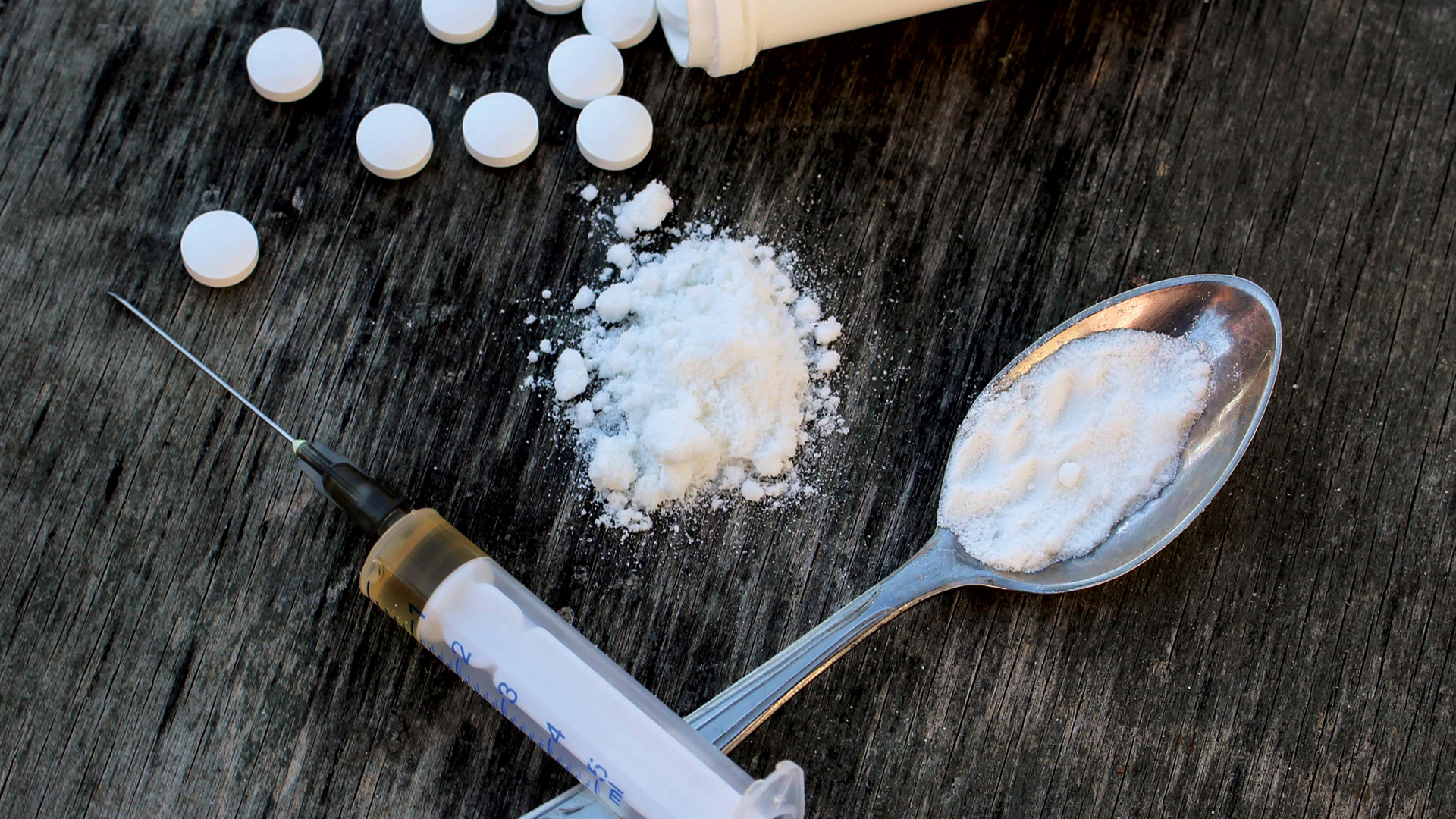05 Jul Street Names and Slang for Heroin
Table of Content
Heroin is an illegal street drug derived from opium and is known to be highly addictive, which is why it is more important than ever to understand the terms that are slang for heroin. The risks of using heroin are severe; yet, millions of people continue to abuse the drug every year. As part of the opiate categorization of drugs, heroin has been linked the top reason of accidental death in America today: drug overdose.
Heroin can be smoked, injected, or snorted. It comes in various forms including black, sticky tar, brown powder, white powder, or solid black chunks. Regardless of the way it is ingested or what form it comes in, the powerful potency of heroin affects the body quickly.
People who buy heroin don’t often know the original supplier. They also don’t accurately know the strength of the drug they are using, if it is pure, or mixed with other illegal substances. This poses an even greater risk for substance abusers and those who use recreationally to become addicted and overdose.
Heroin Street Slang
Abusers of heroin don’t often refer to the drug by its given name. Street slang is common among regular users and those who buy and sell drugs. If you suspect your loved one is using heroin, there are terms to be aware of and listen for during communication.
The language isn’t common for those who don’t use heroin, so the person may feel like they’re inconspicuously speaking in “code.” This list of slang terms for heroin, how heroin is used, and individuals who use it:
- Chasing the dragon
- Dip and dab
- Cook up
- Mainlining (references injecting heroin into the vein)
- Daytime/evening (references a heroin high and coming down from the high)
- Jolly pop
- Paperboy
- Channel swimmer
The slang used for heroin also depends on the culture or city where it’s used. Much like everyday slang words, heroin nicknames are regional. Common phrases include:
- Dope
- Dragon
- Brown Sugar
- Black Pearl
- China White
- Chiva
- Skunk
The list becomes even larger when addressing the Hispanic population. They have their own street names for heroin:
- Gato
- La Buena
- Tiger
- Vidrio
- Carne
- Caballo
- Zoquete
There is clearly an endless list of street names for heroin depending on how people choose to talk about it and which area of the country they live. This “dictionary” of words is known to change frequently in order to disguise trafficking from police officers and even from friends and family.
Heroin Slang When Mixed with Other Drugs
When heroin is sold, it may be mixed with other illegal substances, such as LSD, cocaine, crack, Ecstasy, methamphetamines, morphine, or marijuana. Heroin used on its own is dangerous in its own right, but mixed with other drugs, the risks increase significantly. There is a higher chance of harmful side effects and overdose.
These combinations are associated with their own separate list of slang terms, which makes sense to those who buy and sell drugs. Common slang is also used for regular, everyday words including chocolate chip cookies, snowball, woo-woo, and cheese. With these types of references, it’s easier for a person to discuss drugs openly without worrying about being questioned.
Part of the menu of drug combinations and associated slang phrases are:
- Heroin + marijuana = atom bomb
- Heroin + crack cocaine = dragon rock
- Heroin + LSD = neon nod
- Heroin + Xanax = chocolate bars
- Heroin + methamphetamine = screwball
Heroin is often distributed via paper packages referred to as “bindles.” The term “nickel bag” refers to a package of heroin that costs $5; although, it can be sold at different increments. Heroin may also be distributed in balloons so it can be easily concealed or swallowed when shuttling back and forth.
Drug traffickers who sell mass quantities of heroin package in “kilos” which can be broken into smaller portions referred to as “Zs,” or ounces, when selling
Drug users, pushers, and addicts do not publicize their involvement with heroin or other drugs to those who do not live inside their world. The slang they use forms a secretive community where they can talk about their dealings without it calling too much attention to themselves or illegal activities.
Due to the basic nature of many slang words, simply using the terms isn’t a strong indicator someone is using drugs. However, there are signs to look out for and red flags to be aware of which will instinctively tell you there is drug activity happening.
Why People Use Heroin
People use heroin to achieve a sense of euphoria and/or immediate pain relief. The number of people who are becoming addicted to heroin by way of prescription painkillers is increasing. People who have used opioid painkillers are three times more likely to try heroin than the rest of the population. And, nearly 23% of people who’ve tried heroin have developed an addiction to it, according to the National Institute on Drug Abuse.
Heroin is commonly an alternative to painkillers because it’s less expensive and easier to access. Plus, it’s available in several forms. Whether it is sold in powder or tar form will depend on the location it is produced and the market for where it’s distributed.
Effects of Heroin Addiction
After someone has used heroin, there is one of three paths, he or she will likely follow. The first is addiction. Addiction is when a person cannot continue to function without the use of drugs. To achieve repeated highs, the person will pursue every avenue available until they get their fix.
The second path is dependence. Dependence occurs when the body takes on an urgent need for heroin in order to feel normal. When a person is dependent on the drug, withdrawal symptoms will occur if the body goes too long without it. This dependency is what turns people into addicts.
The third option is drug tolerance. Tolerance means a person has become almost immune to the drug’s effects and often needs more of the drug at a more frequent rate. This rapid succession of use often leads to overdose due to the body taking on too much too quickly.
A person who has taken heroin may experience one or all of these different situations. It depends on how the body responds to the drug and how often the person decides to take it. When opiates engage with the opioid receptors, this is when euphoria kicks in and a person becomes addicted to the feeling of “being high.”
However potent the drug, the high is still short-lived, especially compared to the negative effects the drug has on a person’s life. Heroin abuse and addiction can lead to problems at work and at home. It can create stressful situations involving money, family relationships, and legal issues. When a person is under the influence of heroin or other drugs, he or she may commit crimes they wouldn’t normally take part in when sober. These crimes could range anywhere from driving under the influence to stealing or worse.
Heroin also takes a toll on a person’s overall health. Drug abuse puts people at the risk for infectious disease through the sharing of needles, such as hepatitis and HIV/AIDS. Snorting heroin can create problems with the septum and sinuses. It can also lead to or uncover mental health disorders, including depression, due to its effect on the brain and a person’s personality.
Additionally, women who are pregnant and use heroin put their children at risk for birth defects, low birth weight, or the possibility of having a child born dependent on drugs. They also run the risk of suffering miscarriages.
This only covers one portion of the type of adverse health effects a person faces. Any time a person uses heroin, he or she is at risk for drug dependency, substantial health problems, and possibly death.
Accidental Heroin Overdose
Accidental death due to drug overdose has reached such a high rate in America because people are not seeking help for their addiction. When a person overdoses on heroin, they will show severe symptoms such as slowed heart rate and slowed breathing, loss of consciousness, coma, and/or death.
Naloxone, or Narcan as its more commonly known, has been approved by the FDA to reverse the effects of an overdose. However, for those who are not properly trained in how to use Narcan or fail to take the person to the emergency room or call 911 after a person has overdosed still leaves the possibility of accidental death.
Signs of Heroin Use
When someone is abusing drugs, there are noticeable signs and symptom, such as:
- Extreme mood changes including secretive behavior;
- Depression
- Small pupils
- Slurred speech
- Collapsed veins
- Scars as a result of lesions
Also, take note if the person has frequently missed or been late to school or work. Ask yourself: Have you found drug paraphernalia like baggies or syringes in their home or vehicle? Has the person made a new group of friends, which you haven’t been introduced to or don’t know anything about? Is the person often sneaking off at odd hours of the day?
It can be difficult to accept the truth or confront a loved one with your concerns, but asking is better than ignoring a potential problem. If the signs of drug abuse are there, the chance for overdose is all the more prevalent.
How to Treat Heroin Addiction
The decision for an addict to go through drug withdrawal and work on his or her sobriety is a tough one. It’s not that an addict only wants to use drugs. The body also has been manipulated into needing them to “feel normal.” The withdrawal timeline for heroin typically lasts about a week, but can be affected by how long a person has been using and how much they’ve used over time.
There are several stages of treatment for heroin addiction. First, a person must go through detox. The withdrawal process can be painful and uncomfortable, which could lead to relapse and increased health problems. There are medications a doctor can administer to help with these withdrawal symptoms, but this requires constant monitoring of the person’s overall health and response.
There are three medications most commonly used during this phase of treatment: methadone, naltrexone, and buprenorphine.
Methadone takes on the same opioid receptors as heroin. It helps a person manage cravings during opiate withdrawal without instigating the euphoric high heroin does. Naltrexone blocks heroin’s effects and is not addictive. It’s available by injection or tablet and can be administered once a month to help with the withdrawal process. Buprenorphine is more similar to how methadone works with the body and reduces cravings.
Following detoxification, addicts usually enter some type of behavioral or therapeutic treatment plan. This plan may include an extended stay at a facility for inpatient care or it may be scheduled outpatient care to work with a person’s current lifestyle and day-to-day activities. In either scenario, an addict is recommended counseling on an individual basis or through group counseling. Many people benefit from attending both in order to address the root factors which led to or continue a person’s dependency on drugs.
When a person has used drugs for an extended period of time, it can be difficult to function outside a world they are familiar with living. The transition into a life of sobriety takes time to adjust to and requires steadfast support from professional care, in addition to the support of friends and family.
Drug addiction has been known to tear apart relationships and create huge amounts of stress in a person’s life. In order to move forward from past behavior, addicts must face and work to understand why they chose to use drugs in the past and what will help them from using again in the future. This constant attention for their sobriety becomes an integral part of a person as they enter into a new life.
Hearing your loved one use heroin slang combined with noticeably erratic or unusual behavior are examples of signs they need help. It is ultimately up to the individual to decide to fight for their sobriety, but you can be the person to reach out and help them take the first steps towards recovery.
Sources:
T, Buddy. “Common Slang Terms for Heroin.” Verywell Mind. 19 Nov. 2018. 11 Mar. 2019. https://www.verywellmind.com/common-slang-terms-for-heroin-67371
“Heroin Street Names.” Heroin.net. 11 Mar. 2019. https://heroin.net/about/street-names-for-heroin/
T, Buddy. “Slang Terms and Street Names for Illicit Drugs.” Verywell Mind. 19 Sep. 2018. 11 Mar. 2019. https://www.verywellmind.com/glossary-of-drug-related-slang-terms-67907







No Comments